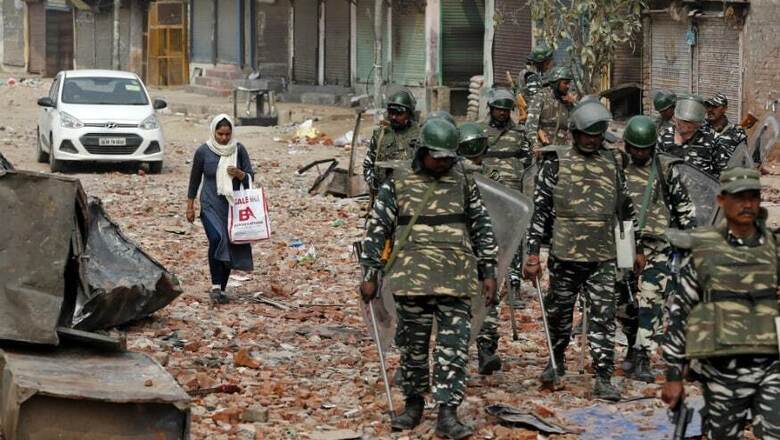
views
Gulshan has finally put her father to rest. It was a heartbreaking moment, but one that she had been waiting for. It was something that she'd had to fight for. “I will never be able to forget what it felt like to bring him back home, in a bag. But at least, after all these months, he was finally returned to me, one last time,” says Gulshan.
A week from now, it will be three months since Anwar Kassar was burnt alive, one of the 53 victims of the Delhi riots. On February 25, his house in North East Delhi was torched and he was allegedly thrown into the fire. All that was found of him was a burnt leg.
“I’m just relieved that I could finally bury my father and that too during Ramzan. This is what I was praying for. That we’re able to say our final goodbye before this holy month ends,” says Gulshan.
Since the past three months, Gulshan had been scrambling to give him a decent burial. First, she had to wait for a DNA test to confirm the identity of the remains. And then, the coronavirus lockdown delayed the process, further. On May 13, an application was filed before the metropolitan magistrate. On the 16th, the court ordered Karawal Nagar police station to release Anwar Kassar’s mortal remains and hand them over to Gulshan.
On Sunday morning, she received a call from a lawyer who informed her that the remains will finally be released from police custody. She left her two sons with her visually challenged husband, hired a cab for Rs 1,500 and left Pilakwa in Uttar Pradesh for Delhi with a neighbour.
“I felt numb on my way to Delhi this time. The first month, all we ever did was journey back and forth from Pilakwa to Delhi. Each day hoping that this would be the day his body would be released. And then the lockdown happened. The wait has been unending and insufferable,” says Gulshan.
Anwar lived in Shiv Vihar, among the areas worst-hit by the communal violence that ravaged large parts of North East Delhi. Gulshan, meanwhile, lives at Pilakwa in Hapur with her husband, Naseeruddin, and their two sons, aged seven and eight.
On returning home, Gulshan found it impossible to explain to her sons what exactly was in the bag. The children were close to their grandfather. It was he who paid their school fees, bought them toys, and now he had come back in a plastic bag. “In the initial days, they would wonder why their Nana wasn’t calling them. He used to call us every evening. With time, they found out that he had been killed in the riots. But how could we ever tell them that only a bone was all that was left of him,” says Gulshan.
It was a small funeral. Due to the lockdown, the immediate family which resides in Delhi couldn’t reach Pilakwa. As is the custom, Gulshan stayed back at home. Her husband, her maternal uncles who live nearby and a neighbour went to the graveyard to bury the remains of her father.
The family is now trying to accept this as closure and look ahead. But the future is uncertain. Naseeruddin lost his sight four years ago after an accident involving acid. Anwar used to support their family by renting out pushcarts. He had a few goats as well.
Back in March, Delhi's Arvind Kejriwal government gave them 1 lakh rupees as immediate relief. Not much is left of that. “Nearly half of that amount was spent on our rent and hiring cabs every day to come to Delhi and wait at the hospital. The rest of it we are using up now to survive. We have no other means. My father was the one who supported us,” says Gulshan.
Gulshan’s story was truly one of the most tragic ones to come out of the horrific Delhi riots, and that’s saying something. Before the lockdown, the family used to receive many calls from people in the Delhi government, looking out for them, she says. “Even Delhi CM Arvind Kejriwal has called. If they call now, I would request them to help me with my children’s education. But ever since the lockdown, there’s not been a single call. It’s like no one cares how we’re doing. It seems people have forgotten us,” says Gulshan.
Around 9 lakh rupees of compensation is still pending; there’s no word on it.
“No amount of money can ever compensate for the loss of my father. Can money bring him back? Can money turn back time and stop those monsters from burning him alive? It’s justice that we want,” Gulshan says.


















Comments
0 comment